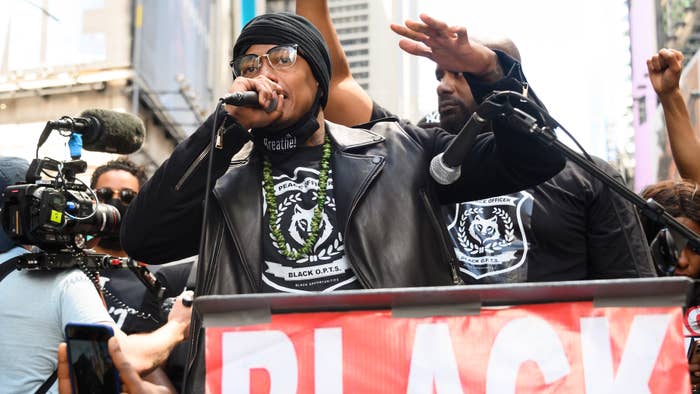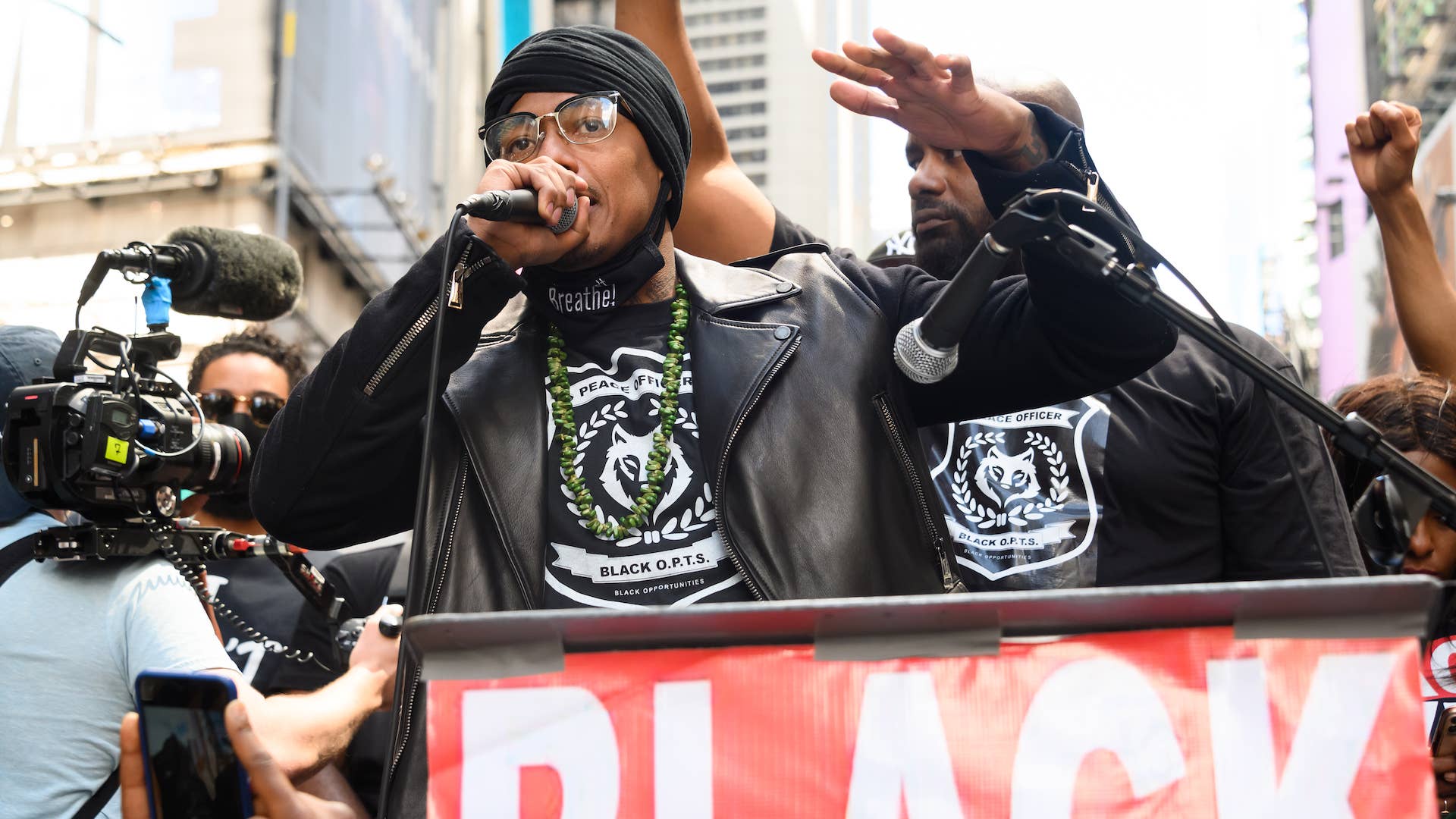
UPDATED 7/14, 10:48 p.m. ET: ViacomCBS has cut ties with Nick Cannon over comments he made during a podcast episode.
"ViacomCBS condemns bigotry of any kind and we categorically denounce all forms of anti-Semitism," the company said in a statement, per Variety. "We have spoken with Nick Cannon about an episode of his podcast ‘Cannon’s Class’ on YouTube, which promoted hateful speech and spread anti-Semitic conspiracy theories. While we support ongoing education and dialogue in the fight against bigotry, we are deeply troubled that Nick has failed to acknowledge or apologize for perpetuating anti-Semitism, and we are terminating our relationship with him. We are committed to doing better in our response to incidents of anti-Semitism, racism, and bigotry. ViacomCBS will have further announcements on our efforts to combat hate of all kinds."
See original story below.
Nick Cannon is addressing the mess he made on his recently released episode of Cannon’sClass. In an exclusive interview with Fast Company, Cannon responded to backlash from his podcast discussion with Public Enemy member Richard “Professor Griff” Griffin.
During the conversation, which reportedly took place last year but wasn’t released until June 30, the two discussed the term anti-Semitic, claiming it could not be used against Black people because “the Semitic people and language have nothing to do with white people,” per Fast Company. “It’s never hate speech, you can’t be anti-Semitic when we are the semitic people. When we are the same people who they want to be. That’s our birthright,” Cannon said, before adding “we are the true Hebrews.”
While there are many Black Jewish people who experience both racism and anti-Semitism, the comments specifically rubbed people the wrong way by dismissing white Jewish identity and the anti-Semitism they face altogether.
The controversy surrounding these statements were compounded by the fact that Professor Griff was actually removed from Public Enemy following anti-Semitic comments he made back in 1989 to the Washington Post.
The two went on to praise Louis Farrakhan, the Nation of Islam leader, who is frequently criticized for his anti-Semitic and anti-gay rhetoric. “Every time I’ve heard him speak, it’s positive, it’s powerful, it’s uplifting,” Cannon said of Farrakhan, claiming the controversial figure had been “demonized.”
Cannon’s response to the backlash was essentially a non-apology wrapped in the announcement that he plans to have further conversations about the topic with rabbis he has invited to his podcast.
“My podcast is specifically an academic podcast to have tough and difficult conversations based off of text. And if we read something and something’s not accurate, let’s do away with it,” Cannon told Fast Company. “I can’t wait to sit down with some people that can help educate me and help further this conversation. I want to be corrected.”
The Masked Singer host went on to condemn hate speech, despite his praise of Farrakhan. “I can’t be responsible for however long Minister Farrakhan has been ministering and things that he said. That is his voice and his fight. I can only be held accountable for what I’ve seen and what I’ve heard,” he said. “But I condemn any hate speech. I don’t care who said it. I don’t care if my dad said it. I don’t care if Farrakhan said it. If anyone is saying something hateful or demonic, I don’t support that at all.”
In his initial response posted to Facebook, Cannon said “I hold myself accountable for this moment,” however some criticized him for failing to provide an actual apology.
“To me apologies are empty. Are you forcing me to say the words ‘I’m sorry’? Are you making me bow down, ’cause then again, that would be perpetuating that same rhetoric that we’re trying to get away from,” Cannon told Fast Company. “What we need is healing. What we need is discussion. Correct me...until someone truly understands where they may have been wrong or where they may have offended someone, then that’s where growth occurs.”

